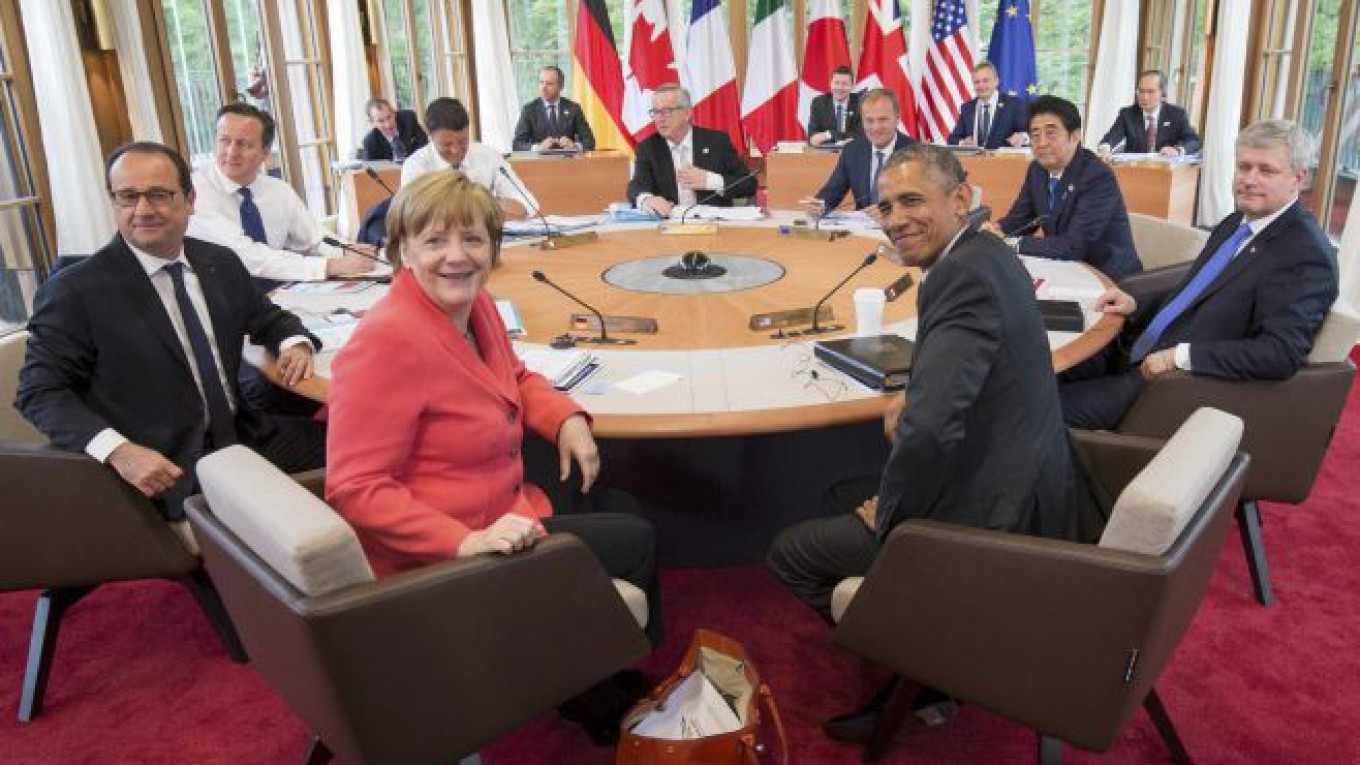The war in Ukraine suggests a new era of competition between the West and Russia. It has revealed fundamental differences in how post-Cold War European security is understood. The acrimonious statements by both sides illustrate the long-standing differences over how the Euro-Atlantic security architecture functions, and whether there is a need to redesign it.
It has also shown the limits of "strategic partnership." Hopes for strategic partnership between the West and Russia have ground to a halt as it has become clear that interests that are "common" are not "shared."
Both Russia and the West are anxious to counter international terrorism, for example, or prevent the proliferation of weapons of mass destruction. But it is also clear that each side defines the causes, nature, location and scale of these interests differently — even the approaches are mutually contradictory, since one side blames the other for causing the problem or considers the other's proposals likely to exacerbate it.
At the same time, there is increasing friction over values. For a decade already it has been increasingly clear that the West and Russia are divided over their understanding of the nature of democracy, including over questions such as human rights and the role of the state in society.
For some years, this was described as a "values gap." But this no longer adequately describes the increasingly evident friction that has emerged between the more liberal Western approach of organizations such as the EU, and the more conservative approach espoused by Russia.
This sense of competition and friction, particularly strong since 2014 and the outbreak of the war in Ukraine, is often depicted as a "new Cold War" or a "return to the Cold War" — in effect, debate has focused around the idea of this competition as being a resumption of the bipolar era between the West and the Soviet Union.
In the Western discussion, Putin is portrayed as seeking to resurrect the Soviet Union or create some version of it — that his leadership is retrograde and taking Russia, and therefore European security, forward to the past.
This "new Cold War" debate is seductive, often presented with reference to the familiar stalwarts of Western thinking, Winston Churchill and George Kennan. But it is misleading and counterproductive. Importantly, it anchors Western thinking about Russia to an out-of-date and simplified, even mythical past. In it, Russia is rendered increasingly abstract.
The problems are threefold. First, the new Cold War debate reflects a persistent and repetitive polemic. Although it has emerged with particular prominence since 2014, it has been a feature of the Western discussion of Russia for a decade.
Since 2005, Western observers have asserted a "new Cold War" based on the direction in which Putin was seen to be taking Russia — away from democracy and partnership with the West. And today's discussion of Ukraine echoes almost exactly the commentaries of 2006, 2007 and 2008, with the energy crises, Putin's famous speech at the Munich Security Conference, Russia's resumption of strategic bomber flights and unilateral suspension of the CFE treaty and the Russia-Georgia war.
The "new Cold War" narrative was resurrected each time a crisis emerged, and each time it was rejected by those who argued that this was not a "new Cold War" since there were no fundamental clashes of interests, nor was there an ideological conflict.
This polemic is not just repetitive but increasingly automatic, unthinkingly deployed: Neither side takes account of the evolution and deterioration of the relationship between Russia and the West during the last decade, nor does it come to grips with the specific and substantive policy issues that underpin it.
Second, some suggest that lessons can be drawn from the Cold War era to help shape policies for the current situation. Yet exactly what is meant by a "new Cold War" remains vague, with little meaning beyond "the West and Russia have a troubled relationship." This allows great leeway for a confusing variety of interpretations, too indistinct and imprecise to allow any practical lessons to be drawn from it. As a result, stereotype and crude caricature infiltrate the argument in their place.
Indeed, the mainstream Western discussion of Russia suffers from a plethora of absurdly simplified and sensationalist analogies in which Russian actions are associated with but not compared to those of the Soviet Union and even Nazi Germany, and in which Putin is presented as the reincarnation of Stalin or Hitler, or some blend of the two.
History in this sense thus becomes myth or a sacred tale in which it is used to assert repetitive patterns from which lessons must be learnt, and the analogies illustrate that if lessons are not learned, then catastrophic consequences will follow.
But this is misleading. It is fertile ground for emotive political advocacy, but not learning practical lessons. It denies the uniqueness of events, discards chance, change, the role of individuals and freedom of action. Instead, it builds an abstract artifice that both distracts from real developments and frames policy options between a simplistic binary choice of (unpalatable) "appeasement" in diplomacy or the more forceful containment and deterrence.
Finally, the new Cold War idea is problematic because it anchors today's thinking to the 20th century, and creates a sense of apparent familiarity. This undercuts the need to adapt to current circumstances, and offers instead easy, "off-the-peg" solutions — effectively that the original readiness plans prepared for a confrontation with the Soviet Union 30 years ago are appropriate for today's challenges.
This is tantamount to preparing to fight the last war, never a good idea, and it does not allow either for the changing international environment or for Russian adaptability.
It is time to think about Russia in fresh, 21st-century terms. This means retiring old metaphors and allowing Churchill and Kennan to rest in peace. To be sure, the relationship is difficult. The friction of interests and values that has emerged between the Western model and the quite different Russian model is serious.
Russia, the West and the international situation more broadly is at a time of flux and competition. Western rules and the Euro-Atlantic architecture will be challenged. But this is not a "new Cold War," it is a "clash of Europes."
Andrew Monaghan is a senior research fellow at Chatham House, and is author of "The New Politics of Russia — Interpreting Change as well as a recent research paper, “A ‘New Cold War’ – Abusing History, Misunderstanding Russia”.
A Message from The Moscow Times:
Dear readers,
We are facing unprecedented challenges. Russia's Prosecutor General's Office has designated The Moscow Times as an "undesirable" organization, criminalizing our work and putting our staff at risk of prosecution. This follows our earlier unjust labeling as a "foreign agent."
These actions are direct attempts to silence independent journalism in Russia. The authorities claim our work "discredits the decisions of the Russian leadership." We see things differently: we strive to provide accurate, unbiased reporting on Russia.
We, the journalists of The Moscow Times, refuse to be silenced. But to continue our work, we need your help.
Your support, no matter how small, makes a world of difference. If you can, please support us monthly starting from just $2. It's quick to set up, and every contribution makes a significant impact.
By supporting The Moscow Times, you're defending open, independent journalism in the face of repression. Thank you for standing with us.
Remind me later.






